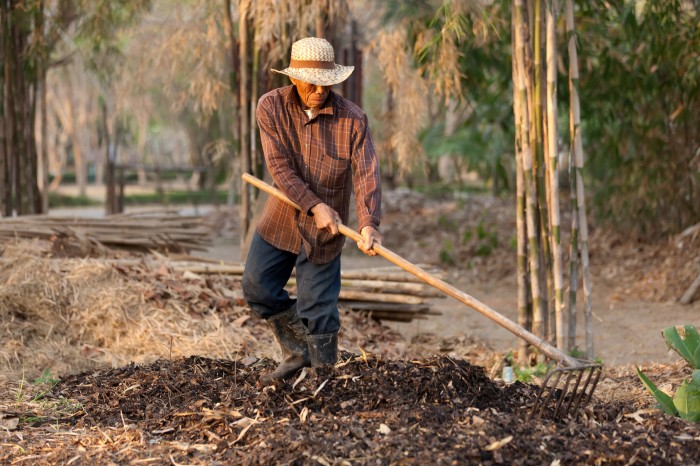You, Your Food & Your Farmer – Part 1

By Gerry Gillespie, Zero Waste Australia
In this post, Gerry Gillespie explains why re-establishing the connection with our farmers is vital and describes the central role of soil in our economy.
For many of us living in urban centers around the world, it is regrettable that our most moving environmental experiences happen at the vegetable counter of our local supermarket. Yet everything we are and everything we ever will be depends on what we eat. But many of us have lost the connection to the farmer as our food producer and guardian of the land. Many of us no longer relate to the soil as our mother.
It is said that up to 70% of all industrial inputs come from agriculture. Even if this were not accurate, everyone must eat to work.
Business cannot do business without farmers – the currency of farming is soil.
Regardless of the farmers religious, social or political beliefs we need to have a relationship with them because they are making our food. This connection is the essence of economy.
Everything we are relates to the quality of what we eat, it is the soil of the earth which underpins our survival. It is the foundation stone of humanity. Charles Walters, now departed soil hero and long-time editor of Acres Magazine in the US, often made the point that the fundamental part of any economy is its soil. Indeed farmers can continue to control this repeatable part of our economy, provided soil quality is managed and maintained.
Internationally we live in a world obsessed by markets and profits for shareholders but we are losing up to 10 kg (22 Lbs) of soil for every meal the world consumes, yet the dumb, giant, juggernaut of global trade has forgotten that it cannot exist without soil.
Business cannot do business without soil. It is the soils of other lands, which feed and clothe the workforce, which makes the goods for export. Indeed in many cases it is the soils themselves, which grow the goods for export.
As an example, the nation of Japan relies on 12 million hectares of land, outside its own landmass to maintain its inputs for production. Yet these are lands over which it has little control. How is production maintained in the instance of natural disaster earthquake or tsunami which stops supply? The same is true for all nations. It is the soil, which fills the nations belly and enables it to work. It is in the interests of all nations to produce and control their own food – To know its own agricultural base.
But where is our connection to the farming family?
The digital age and the benefits of social networking applications are a unique opportunity to re-connect our urban populations with our farmers and promote transparency of our food system. The next post will suggest scenarios and concepts supporting this conclusion.